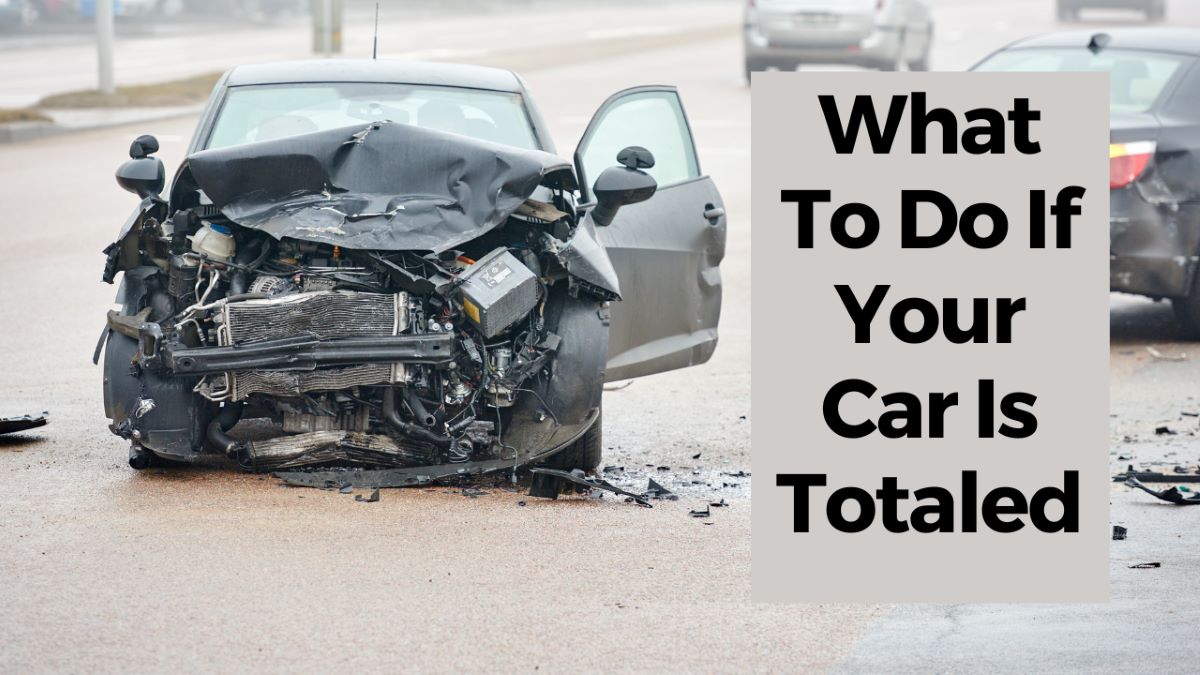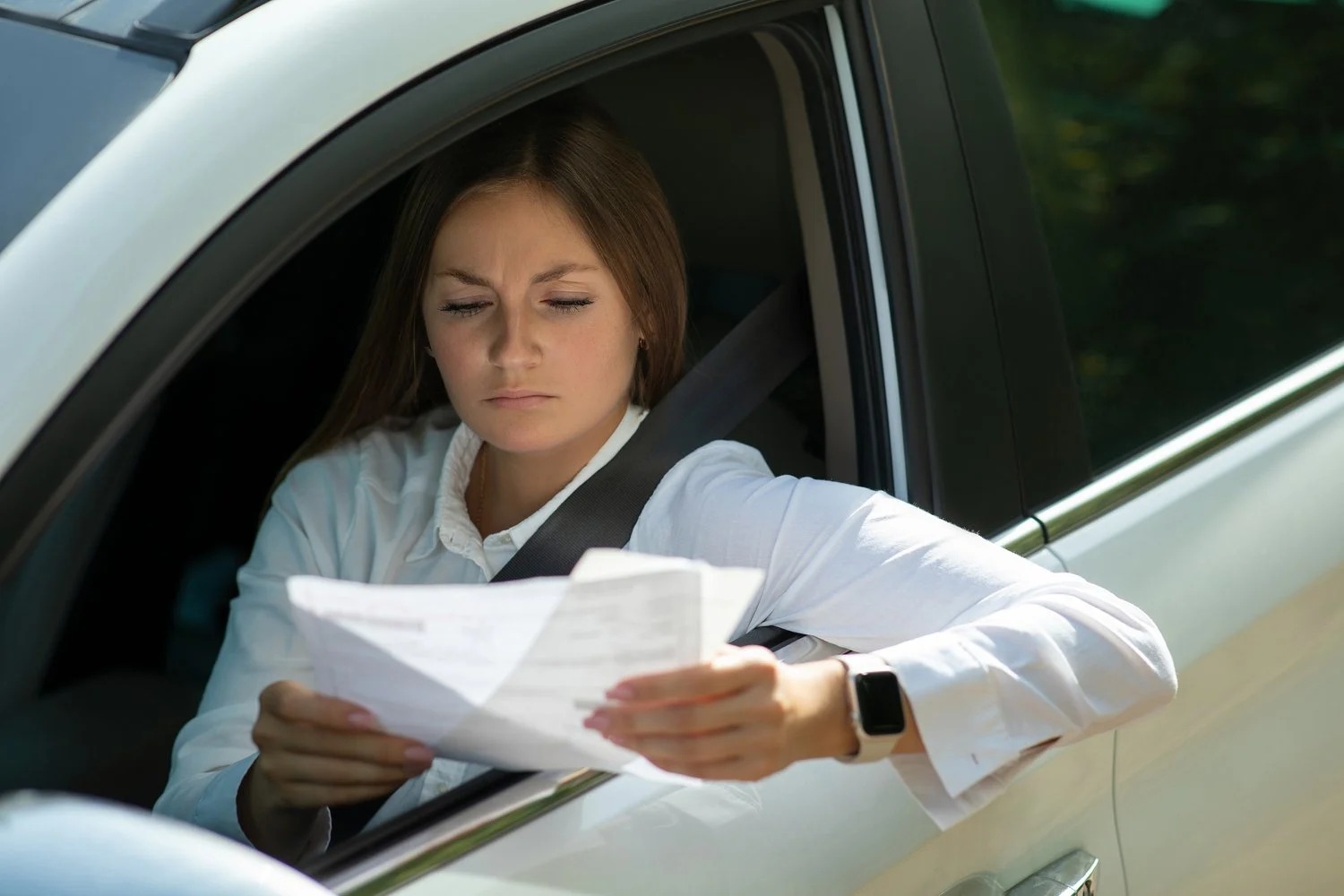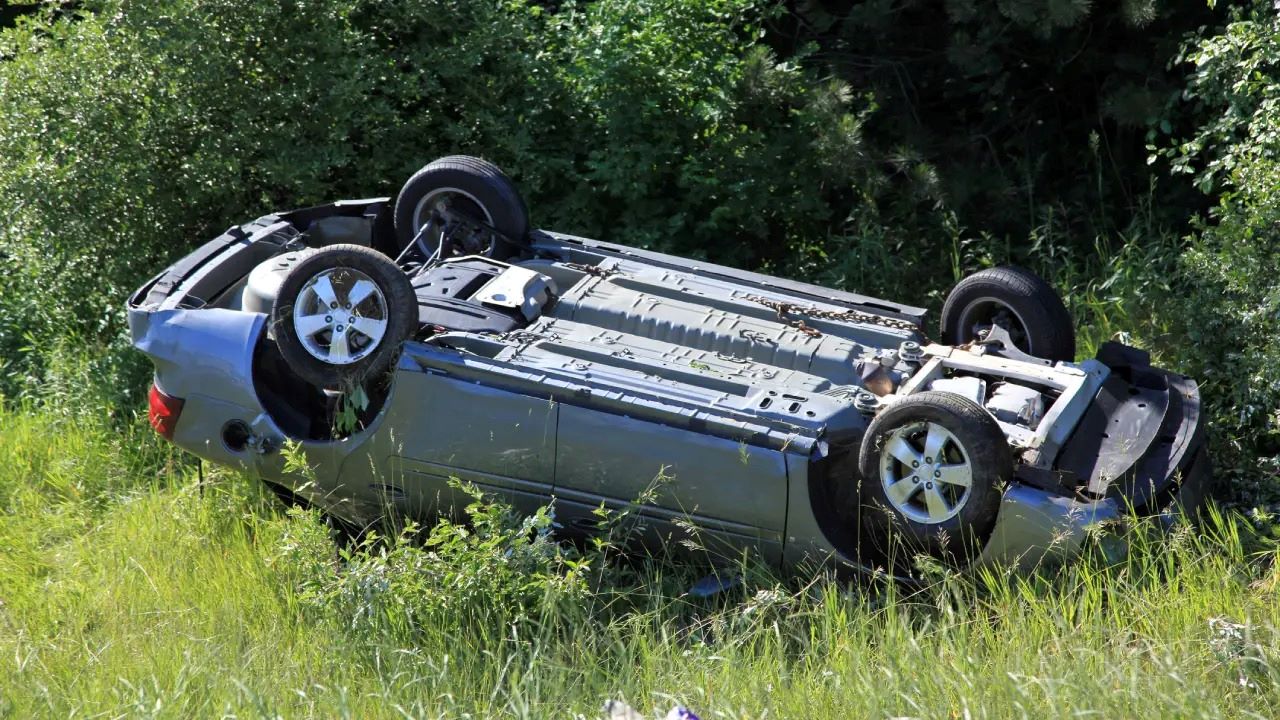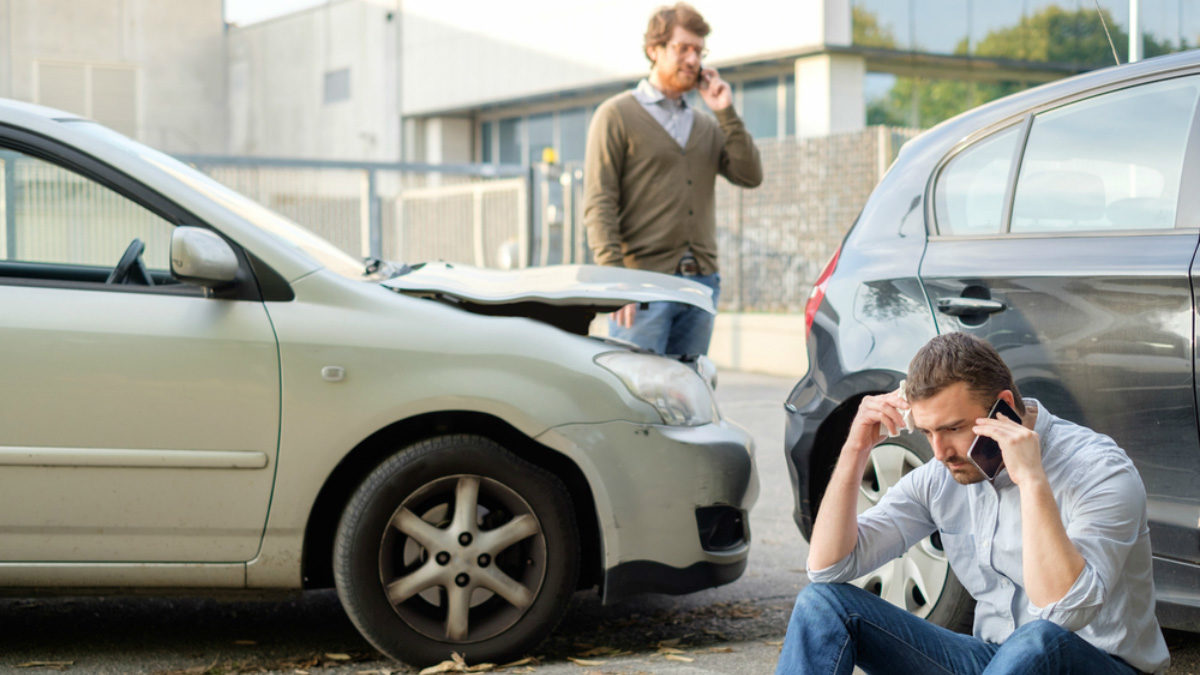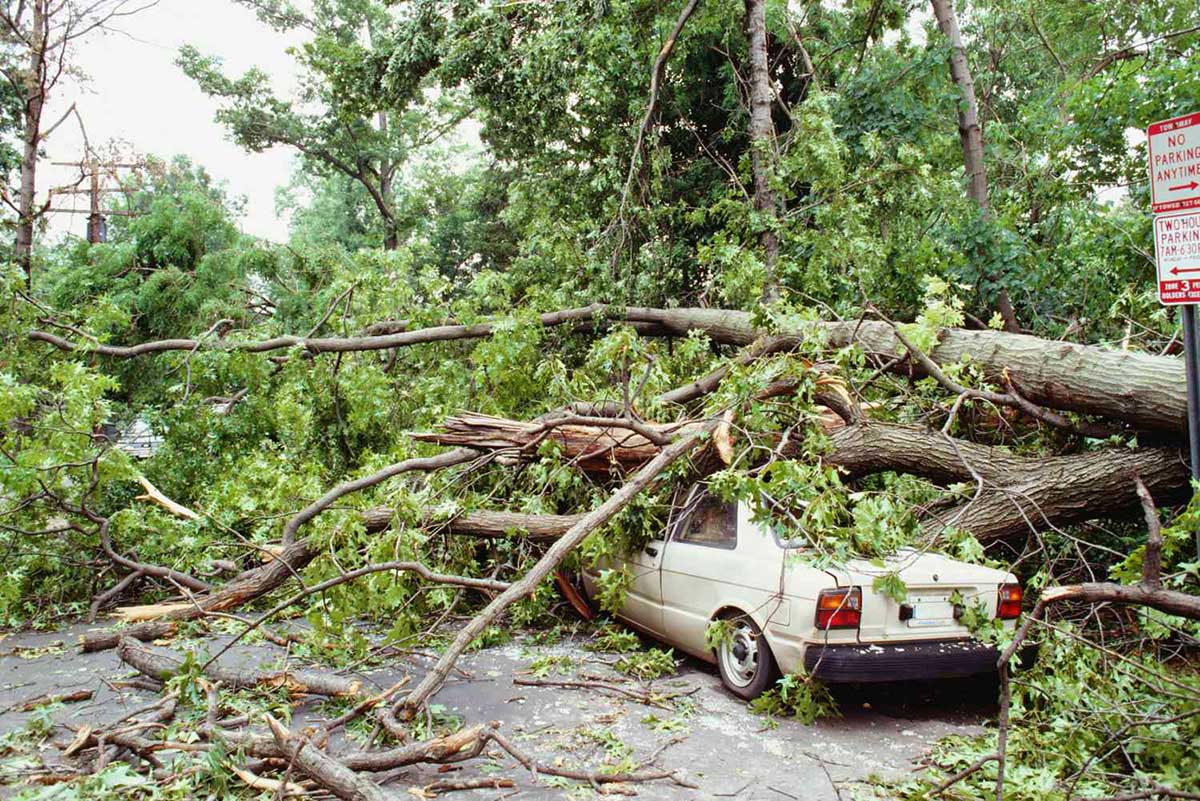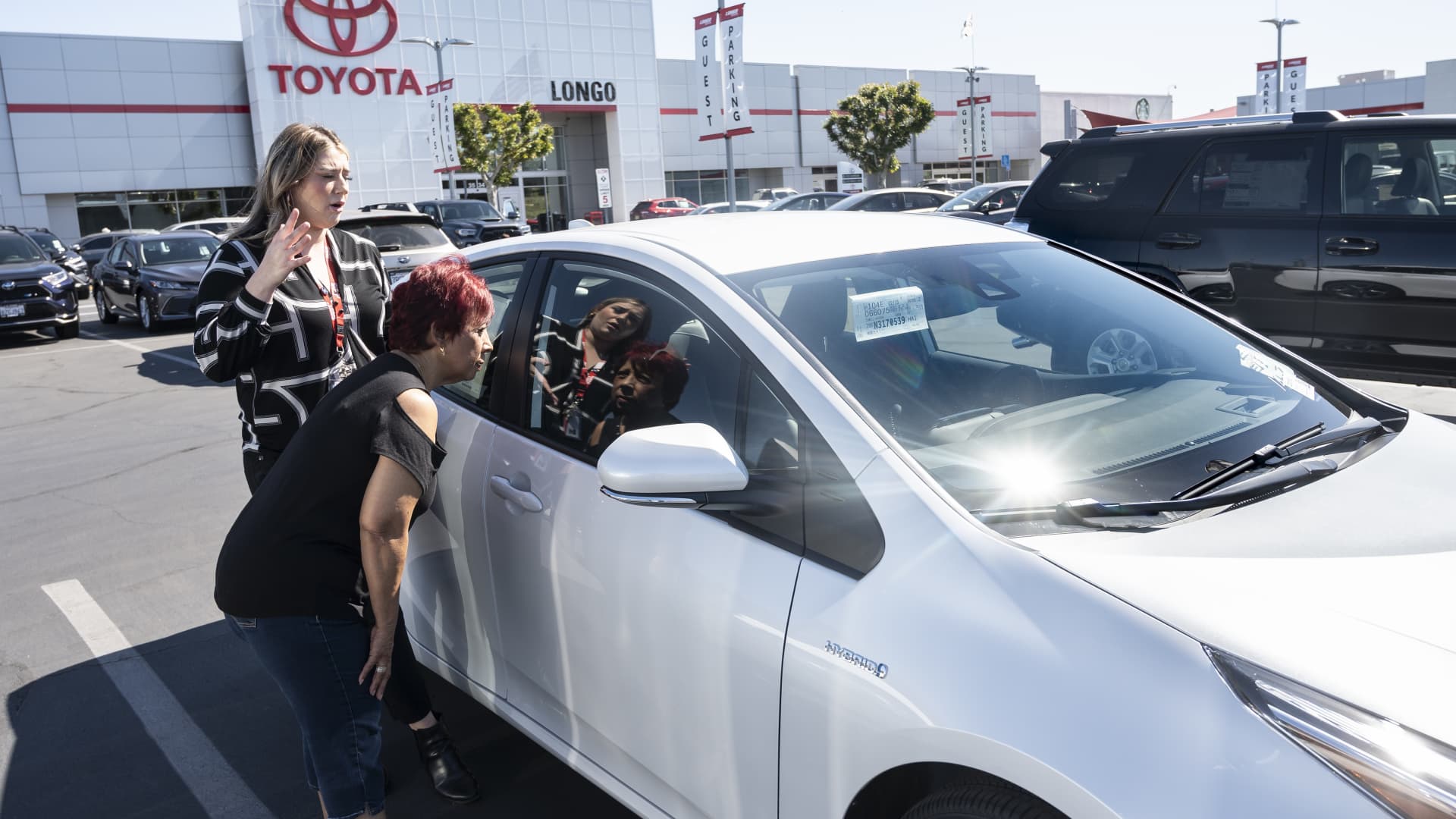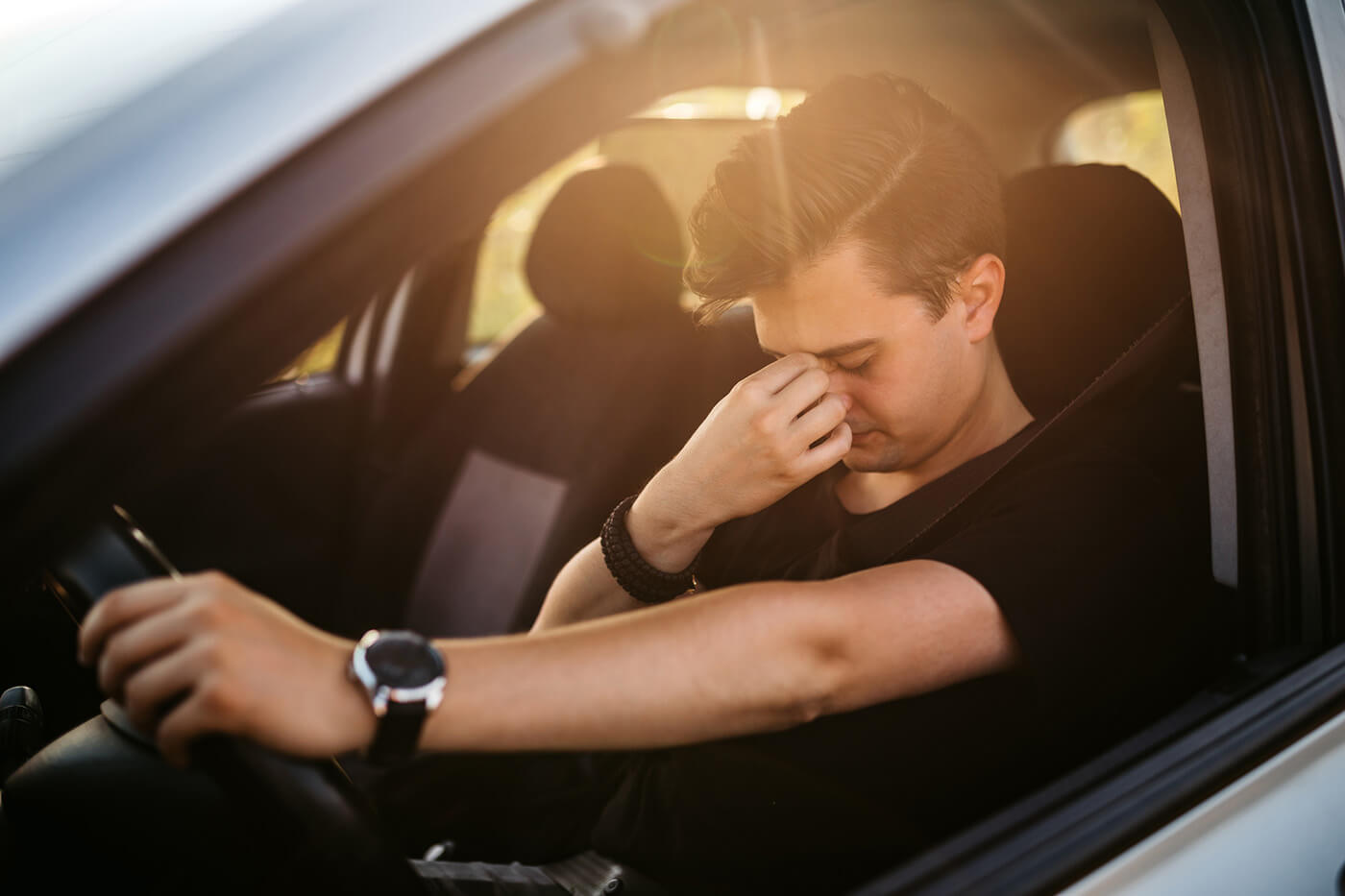Home>Finance>What To Do If Your Car Is Stolen Without Insurance


Finance
What To Do If Your Car Is Stolen Without Insurance
Published: November 19, 2023
Discover what steps to take if your car gets stolen without insurance. Protect your finances and learn how to handle this unfortunate situation efficiently.
(Many of the links in this article redirect to a specific reviewed product. Your purchase of these products through affiliate links helps to generate commission for LiveWell, at no extra cost. Learn more)
Table of Contents
Introduction
Having your car stolen is a distressing experience, but it can be even more challenging if you do not have insurance coverage. While insurance can provide financial protection and assistance in recovering a stolen vehicle, not having coverage does not mean all hope is lost. If you find yourself in the unfortunate situation of having your car stolen without insurance, there are a few key steps you should take to maximize the chances of recovering your vehicle.
In this article, we will guide you through the necessary actions to take if your car is stolen without insurance. While we hope you never have to use this information, being prepared can help alleviate some stress and provide a roadmap for the recovery process.
It is important to note that every country and region may have different procedures and regulations when it comes to reporting a stolen vehicle and recovering it. Therefore, it is essential to familiarize yourself with your local laws and regulations regarding stolen vehicles.
Now, let’s delve into the steps you should take if your car is stolen without insurance.
Step 1: Report the Theft to the Police
As soon as you realize that your car has been stolen, the first and most crucial step is to report the theft to the police. Contact your local law enforcement agency and provide them with all the necessary details about your stolen vehicle. This includes the make, model, color, license plate number, and any distinguishing features or modifications on your car.
Make sure to provide an accurate timeline of when you last saw your vehicle, as this information can be crucial in their investigations. The police will require this information to create a stolen vehicle report, which is essential for insurance claims and other recovery efforts.
When reporting the theft, it is helpful to have your vehicle identification number (VIN) handy. The VIN is a unique identifier for your car, and it can be found on the dashboard of your vehicle or on the driver’s side door jamb. Providing the VIN to the police can aid in their search for your stolen vehicle.
Once you have filed the police report, be sure to obtain a copy for your records. This report will serve as proof of the theft and will be required when dealing with insurance companies or if there are any legal ramifications related to the stolen vehicle.
Remember, the more detailed and accurate the information you provide, the better the chances of the police locating and recovering your stolen car. Cooperation with the authorities is essential throughout the entire process.
Now that you have reported the theft to the police, it is time to move on to the next step: contacting your insurance company to inform them of the situation.
Step 2: Contact Your Insurance Company
After reporting the theft to the police, the next important step is to contact your insurance company and inform them about the stolen vehicle. Even if you don’t have comprehensive car insurance, it is still advisable to notify your insurance provider about the situation. They may be able to provide guidance or offer alternative solutions.
When contacting your insurance company, be prepared to provide them with your policy information, the police report number, and any other relevant details about the theft. This will help them initiate the claims process and provide you with the necessary assistance and guidance.
If you have comprehensive car insurance, your insurance provider may be able to compensate you for the loss of your stolen vehicle. The process and coverage will vary depending on your policy, so it is important to review your insurance policy documents or consult with your insurance agent to understand the extent of coverage.
It is worth noting that if you were driving without insurance at the time of the theft, your insurance company may not be able to provide any compensation. However, it is still essential to inform them about the incident for documentation purposes.
If you do not have car insurance or your policy does not cover theft, your insurance company may still be able to provide some assistance or guidance in the recovery process. They may have resources or knowledge on how to navigate the situation and potentially assist in finding your stolen vehicle.
Remember to document all the communication you have with your insurance company, including the names of the representatives you speak with and the details of the conversation. This documentation will be helpful if there are any disputes or issues that arise during the claims process or recovery efforts.
Now that you have contacted your insurance company, it is time to provide all the necessary information and cooperate with law enforcement to aid in the recovery of your stolen vehicle.
Step 3: Provide All Necessary Information
Once you have reported the theft to the police and contacted your insurance company, it is crucial to provide them with all the necessary information to aid in the recovery of your stolen vehicle. This includes any details or evidence that can help law enforcement authorities in their investigation.
Here are some key pieces of information and documentation you should provide:
- The police report number: This is the unique identifier for your stolen vehicle case. It allows both the police and your insurance company to reference and track the progress of the investigation.
- Vehicle details: Provide a detailed description of your stolen vehicle, including the make, model, color, license plate number, and any distinguishing features or modifications on the car.
- Vehicle identification number (VIN): The VIN is a unique identifier for your vehicle, usually consisting of a series of letters and numbers. It can help law enforcement authorities in identifying and locating your stolen car.
- Photos and documentation: If you have any photographs or documents detailing your vehicle, such as registration papers or maintenance records, provide copies to both the police and your insurance company. These documents can serve as additional evidence and provide valuable information about the stolen vehicle.
- Witnesses: If there were any witnesses to the theft or anyone who can provide information about the incident, share their contact details and statements with the police. Eyewitness accounts can be valuable in investigations.
- Vehicle tracking devices or apps: If you had any tracking devices or apps installed on your vehicle, inform the police and your insurance company about them. This information can enhance the chances of locating your stolen car.
By providing all the necessary information promptly and accurately, you increase the likelihood of a successful recovery. Make sure to maintain open lines of communication with both the police and your insurance company throughout the process.
Now that you have provided all the necessary information, it is important to cooperate fully with law enforcement and follow any instructions they provide to aid in the recovery efforts.
Step 4: Cooperate with Law Enforcement
Cooperating with law enforcement authorities is essential in the process of recovering your stolen vehicle. By working closely with the police, you can enhance their efforts and increase the chances of locating and retrieving your car. Here are some key ways to cooperate:
Provide ongoing updates: Keep the police informed about any new information or developments related to your stolen vehicle. If you come across any leads or have any suspicions about the whereabouts of your car, share them with the police promptly.
Follow instructions: Law enforcement may provide instructions on the actions you need to take or the information they require during the investigation. It is important to follow their guidance carefully and promptly provide any requested documents or evidence.
Stay accessible: Make sure the police can reach you easily. Keep your contact information up to date and respond promptly to any inquiries or requests for additional information from law enforcement.
Assist with investigations: If the police require your assistance in the investigation, such as providing additional statements or answering questions, cooperate fully. Your cooperation can help them gather the necessary evidence and build a stronger case.
Share social media posts: If appropriate, ask the police if they can share information about your stolen vehicle on their social media channels. This can help spread awareness and increase the chances of someone spotting your car.
Be vigilant: Keep an eye out for any suspicious activities or advertisements related to the sale of your stolen car. Inform the police immediately if you come across any such information.
Remember, the recovery process can take time, and it is important to remain patient and persistent. Law enforcement authorities are committed to recovering stolen vehicles, and your cooperation plays a crucial role in their efforts.
Now, let’s explore other recovery methods that you can consider in addition to working with law enforcement.
Step 5: Explore Other Recovery Methods
While working with law enforcement is the primary avenue for recovering your stolen vehicle, there are other methods you can explore to increase the chances of finding your car. Here are some additional recovery methods to consider:
Spread the word: Utilize your personal network to spread the word about your stolen vehicle. Share the details with friends, family, and colleagues, and ask them to keep an eye out for any sightings or information. The more people who are aware of the situation, the higher the chances of someone providing a tip or spotting your car.
Monitor online marketplaces: Regularly search online marketplaces, classified websites, and social media platforms for any listings or advertisements matching the description of your stolen vehicle. There have been cases where stolen cars have been sold online, so staying vigilant in your online search can be fruitful.
Notify local auto shops and scrapyards: Contact local auto repair shops, salvage yards, and scrapyards to inform them about the theft. Provide them with the details and request that they keep an eye out for any vehicles matching the description. Stolen cars are sometimes brought to these establishments for repairs or to be scrapped for parts.
Utilize vehicle recovery services: Some companies specialize in vehicle tracking and recovery services. If you had a tracking device or service installed in your car, contact the provider to inform them about the theft. They may be able to assist in tracking the location of your vehicle or provide additional support in the recovery process.
Engage private investigators: If you have exhausted all other options and are still unable to locate your stolen vehicle, you may consider hiring a private investigator. They have the expertise and resources to conduct a thorough investigation and increase the chances of finding your car.
Remain proactive: Stay informed about any developments in the local law enforcement agencies’ efforts to combat vehicle theft. Attend community meetings, join online forums, and stay active in your local community to stay up to date with any initiatives or programs that focus on preventing and recovering stolen vehicles.
Remember, these alternative recovery methods are meant to complement your cooperation with law enforcement, not replace it. It is important to continue working closely with the police throughout the entire process.
Now that you are familiar with various recovery methods, let’s move on to taking preventive measures to protect your vehicle in the future.
Step 6: Take Preventive Measures
While dealing with the aftermath of a stolen vehicle can be stressful, it is essential to take preventive measures to protect your car from being stolen in the future. By implementing these precautions, you can reduce the risk of theft and provide yourself with peace of mind:
Invest in anti-theft devices: Install security devices such as steering wheel locks, tire locks, and electronic immobilizers. These devices act as deterrents and make it more challenging for thieves to steal your car.
Use a tracking device: Consider investing in a GPS tracking system that can help locate your car in the event of theft. These devices allow you to track your vehicle’s location in real-time and increase the chances of recovery.
Park in well-lit areas: Whenever possible, park your car in well-lit areas with high foot traffic. Thieves are less likely to target vehicles that are in highly visible locations.
Secure your keys: Keep your car keys in a safe and secure location inside your home. Avoid leaving spare keys in obvious places, such as under the doormat or inside the glove box.
Lock your car: Always lock your car when you leave it, even if you are only stepping away for a moment. Thieves often look for easy targets, and an unlocked car is an invitation for theft.
Be cautious with your personal information: Avoid leaving important documents, such as your registration or insurance papers, inside the car. This information can be used by thieves to commit identity theft or sell your stolen vehicle more easily.
Be aware of your surroundings: Stay vigilant and be mindful of any suspicious activities or individuals near your vehicle. Trust your instincts and report any concerns to the authorities.
Consider comprehensive insurance coverage: If you do not already have it, consider purchasing comprehensive car insurance coverage. This type of insurance can provide financial protection in the event of theft or damage to your vehicle.
Taking these preventive measures can significantly reduce the risk of car theft and improve your car’s overall security. By being proactive, you can minimize the likelihood of experiencing the devastating effects of a stolen vehicle.
Now, let’s conclude.
Conclusion
Experiencing the theft of your car without insurance can be a challenging situation, but it is important to remain proactive and take the necessary steps to maximize the chances of recovering your stolen vehicle. By following the steps outlined in this article, you can navigate the recovery process with more confidence.
Remember to report the theft to the police as soon as possible and provide them with accurate and detailed information about your stolen vehicle. Contact your insurance company to inform them of the situation and explore any potential coverage options. Cooperate fully with law enforcement authorities and provide all necessary information to aid in their investigation.
In addition to working with law enforcement, consider exploring other recovery methods such as spreading the word among your personal network, monitoring online marketplaces, and engaging vehicle recovery services or private investigators if necessary.
Prevention is key, so taking proactive measures to protect your car from theft in the future is vital. Install anti-theft devices, park in well-lit areas, secure your keys, and be cautious with your personal information. These precautions can greatly reduce the likelihood of your vehicle being targeted by thieves.
While the process of recovering a stolen vehicle can be challenging and time-consuming, maintaining a positive outlook, staying patient, and remaining in communication with law enforcement and your insurance company are crucial. Remember that every case is unique, and recovery timelines may vary.
Ultimately, taking immediate action, staying vigilant, and being proactive can greatly increase the chances of recovering your stolen car without insurance. We hope that you never have to experience such a situation, but if you do, the information shared in this article will help you navigate the process more effectively.
By following these steps and taking preventive measures, you can protect your vehicle’s safety and minimize the risk of future thefts. Stay informed, stay proactive, and stay safe.
